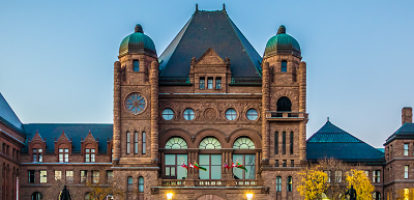From: Lawrence Herman
To: Foreign influence watchers
Date: May 16, 2024
Re: Foreign Agent Registry – Finally Some Action
The Globe and Mail got it right in a May 9 editorial: After months – years – of prevarication, the government finally showed enough resolve to announce plans for a foreign agent registry to combat outside interference in Canadian politics.
The proposed Foreign Influence Transparency and Accountability Act, embedded in the omnibus Bill C-70, will require persons to register when they have arrangements with foreign governments, agents or political parties under which those persons undertake “to carry out certain activities in relation to political or governmental processes in Canada.”
There are many parliamentary miles to travel before Bill C-70 gets approved, and no guarantee a registry will emerge before the 2025 election. This gives time to address the shortcomings in the proposed act, as it undergoes parliamentary scrutiny at the committee stage.
After the Globe’s first foreign meddling stories early last year, former public safety minister Marco Mendocino launched public consultations on a registry, which wasn’t really needed. The facts on the ground supporting a registry were well-known and well understood by the government by then. A registry could have been put in place years ago.
The concept is pretty straightforward and not particularly earth-shattering. It’s about transparency, turning on the spotlight so that foreign linkages are in the public domain. The bill doesn’t prohibit representing those interests. Illegality only kicks in if there’s a refusal to register or if criminal activities take place.
The first defect MPs can examine is the bill’s narrow definitions of which arrangements require registration. These are confined to communications by foreign agents with a “public office holder” or with the Canadian public, including by social media, but only where communications concern Canada’s “political or governmental process” – in turn defined as legislative proceedings, government decision-making or the holding of elections. This is much narrower than what Canada’s allies have in place.
The 1938 US Foreign Agents Registration Act (FARA) – enacted to track the work of German propaganda agents – requires registration for activity intended to, or even “believed” to, influence the US government or any section of the US public regarding: (1) formulating, adopting, or changing the foreign or domestic policies of the United States or (2) the “political or public interests, policies, or relations of a government of a foreign country or a foreign political party.” Unlike FARA, the proposed Canadian registry would not require registration for actions or communications aimed at influencing Canadian public opinion.
Australia’s Foreign Influence Transparency Scheme, initiated in 2018, requires persons acting on behalf of foreign governments or their affiliates to register if their activities involve general lobbying or communicating with the public and undertaken “for the purpose of political or governmental influence.” The UK’s Foreign Influence Registration Scheme requires registration of foreign agents for arrangements involving political activities of a broad sort, not confined, as in Bill C-70, to political or governmental “process.”
Looking at the larger scale approach taken by Canada’s Five Eyes allies, the question for Parliament is whether registration under the Canadian scheme should be expanded beyond the political “process,” to capture broader types of communicating and lobbying aimed at manipulating Canadian public opinion. The Hogue inquiry and evidence about Chinese, Russian other foreign meddling suggests the answer is yes.
The second shortcoming concerns exemptions. Foreign diplomats and lawyers representing clients are exempted, but so are arrangements involving “religious, scholastic or scientific activities.” This latter exclusion seems unduly broad and would eliminate, for example, arrangements with persons in Canada directly or indirectly connected with the Chinese government or the Chinese Communist Party that concern scientific research at universities or quasi-governmental bodies like the National Research Council.
The 2021 firing of two Chinese researchers at the National Microbiology Laboratory in Winnipeg, details of which still haven’t been fully disclosed, brings the point home. It suggests that registration requirements should cover direct and indirect arrangements between a foreign principal and any Canadian institution undertaking sensitive or critical scientific research.
At the end of the day, the registration system is about disclosure, transparency and a legitimate need to know, providing information in the public interest. It won’t be illegal to be a foreign agent or to engage in political activities on behalf of a foreign government: the arrangements just have to be disclosed. Thus, while the proposed registry is an essential element in improving Canada’s security system, members of Parliament need to scrutinize aspects of the system that need strengthening.
Lawrence Herman is an international lawyer at Herman & Associates and senior fellow at the C.D. Howe Institute.
To send a comment or leave feedback, click here.
The views expressed here are those of the author. The C.D. Howe Institute does not take corporate positions on policy matters.





